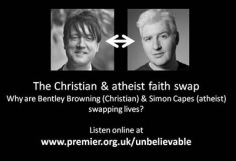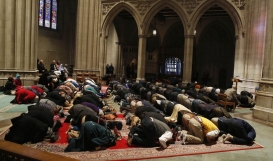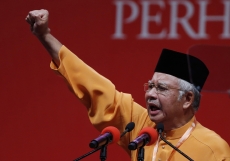
A former Seventh-day Adventist pastor who chose to give up religion for a year has announced that he no longer believes in God.
"I've looked at the majority of the arguments that I've been able to find for the existence of God and...I have to say I don't find there to be a convincing case in my view," Ryan Bell revealed in an interview with National Public Radio (NPR).
"I don't think that God exists. I think that makes the most sense of the evidence that I have and my experience. But I don't think that's necessarily the most interesting thing about me," he added.
Raised in a Christian family, Bell studied at Pacific Union College where he was known for his deeply-held conservative views. He went on to become pastor of several churches in Philadelphia, before moving to Hollywood to lead a Seventh-day Adventist church there. However, he was asked to resign in March 2013 after raising theological issues he had with the church's teaching, and began to struggle with his faith.
Then, in December of last year, Bell wrote a blog post that quickly went viral. He announced that he would be undertaking a "year without God".
"I'm making it official and embarking on a new journey. I will 'try on' atheism for a year. For the next 12 months I will live as if there is no God," Bell wrote.
"I will not pray, read the Bible for inspiration, refer to God as the cause of things or hope that God might intervene and change my own or someone else's circumstances. (I trust that if there really is a God that God will not be too flummoxed by my foolish experiment and allow others to suffer as a result)."
Bell also pledged to read "atheist 'sacred texts'" written by key authors such as Hobbes, Nietzsche, Hitchens and Dawkins.
"I will also attempt to speak to as many actual atheists as possible - scholars, writers and ordinary unbelievers - to learn how they have come to their non-faith and what it means to them. I will visit atheist gatherings and try it on," he added.
"In short, I will do whatever I can to enter the world of atheism and live, for a year, as an atheist. It's important to make the distinction that I am not an atheist. At least not yet. I am not sure what I am. That's part of what this year is about."
Bell blogged his journey, which began with him losing his teaching jobs at two religious institutions because of his decision. He said that he would announce his stance on religion in the new year, however in an interview with NPR last week he said that he no longer identifies with Christianity, though he said atheism feels like "an awkward fit".
"I have adjusted or acclimatised to the atheist community...but there are still elements of it that are a bit more confident than I find myself to be...it's still an awkward fit," he explained.
"I think one of the things I've learned is that people very much value certainty and knowing, and are uncomfortable saying that they don't know...Atheists, I think, are comfortable with saying they don't know, I find that Christians are very uncomfortable saying that they don't know. I think on all sides of his question, certainty is a little overrated."
Bell now works for PATH, an organisation which works with homeless people, and has begun dating - his girlfriend is a committed Christian.
"I think there are much more important issues to be focussed on, things that are really threatening our society, while we're worried about what's going to happen after we die, when in reality none of us knows," he said.
"But what we do know, is that if we don't do something about the immediate challenges we're facing today, we're going to die a lot sooner than we might otherwise."

















